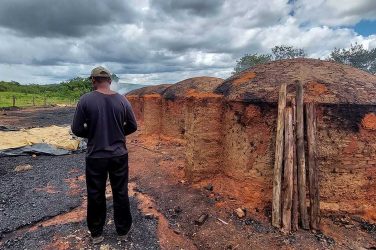
In the interior of Brazil's Northeast the expression "a moça ficou para o caritó" (the lady was left in the bedroom), which dates back to the 16th century, is still used. It means that time has passed and the lady in question did not marry. The meaning of the expression is understood when one gets to know the peculiar buildings of masters' houses at old sugarcane mills.
The bedroom (caritó) of the lady (moça) had no windows and one single, obligatory passage through her parents' bedroom. Thus, it was easier to keep watch over the damsels, preventing them from giving in to men's attempts at seducing them.
The new tourist route, named Civilization of Sugar, places this and other oddities of the Colonial Brazil at the reach of tourists. Paraíba, Pernambuco and Alagoas are the three states covered by the proposal, which encompasses more than 20 municipalities.
The goal is to bring visitors further to the interior of the states, thus showing that these places have more to offer than the traditional Sun and Beach segment.
Each of the states represents a different step of the sugar production cycle. Pernambuco houses the mills in which there is no economy activity whatsoever anymore. On the other hand, it has the best-preserved structures, with masters' and slave houses that retain their original characteristics, to which visitors are welcomed by people wearing typical attire.
In Paraíba, the main attraction is visits to active mills, where tourists can follow the manufacturing of products such as cachaça (alcoholic beverage made from sugarcane) and rapadura (hard sweet also made of sugarcane). The whole manufacturing process is explained in detail, and the visits include tastings.
The evolution of the mills can be witnessed in Alagoas. Tourists visit complexes with modern machinery where sugar and alcohol are made. In all of the states, in addition to tastings, lodging and meal options are available to tourists.
"This type of route allows for the mills to be recognized for the features that they have never lost. This way, tourists can have enriching experiences, visit the interior of the states, at the same time getting to know the history of each one of them," says the manager of Sebrae's project in Pernambuco, Izabel Francisca.
Civilization of Sugar is part of a new generation of tourist routes that also includes Aparados da Serra, which is the canyon region of the states of Rio Grande do Sul and Santa Catarina; Integrated Southeast route, consisting of four federal highways that link the states of Minas Gerais, São Paulo, Rio de Janeiro and Espírito Santo, among others.
The routes are part of the second phase of an agreement that was closed by the Brazilian Ministry of Tourism, Sebrae and the Brazilian Tourism Institute (Embratur).
Sebrae




